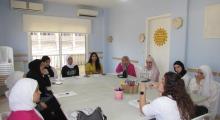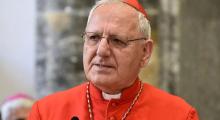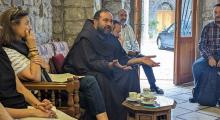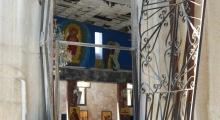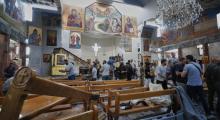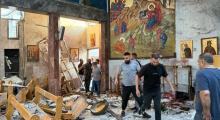Issued by the Catholic Center for Studies and Media - Jordan. Editor-in-chief Fr. Rif'at Bader - موقع أبونا abouna.org
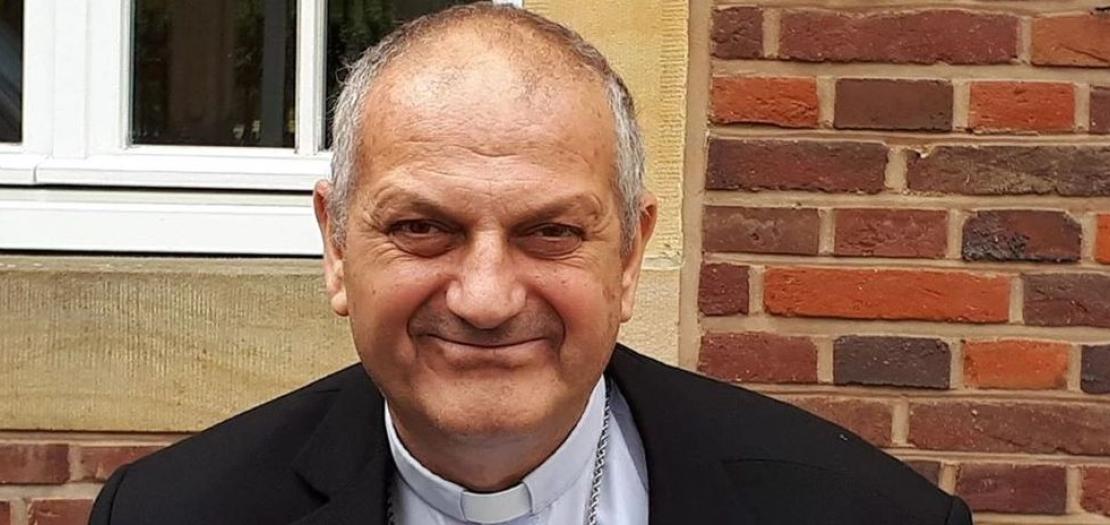
The situation in Syria continues to be one of severe poverty and uncertainty, says the Syriac-Catholic Archbishop of Homs, and many Christian families are still trying to leave the country.
According to Archbishop Jacques Mourad, the recent replacement of the regime of Bashar al-Assad by one with fundamentalist Muslim roots has bred suspicion among the different ethnic and religious groups in the country.
“The people of Syria live without dignity, and without trust in each other, in the government and in the international community. This has become a heavy weight on the shoulders of the people,” said Archbishop Mourad, in an online press conference organized by pontifical charity Aid to the Church in Need (ACN).
Speaking from Syria Monday, June 2, the prelate explained that although the government has made many conciliatory gestures towards the Christian community and other religious minorities, the presence in the streets of bearded and heavily armed Salafist militias leaves many uneasy.
“For the Syrian people, it is strange. It is foreign to them and to their traditions. They have never been confronted by such a rigid form of Islam. It is foreign to them, and there is a certain social discomfort.”
According to Archbishop Mourad, even many Sunnis – the majority religion in Syria – are suspicious of the militants who roam the streets. “In the history of Syria, there has never been only one religion; there has always been diversity. This is a place of encounters, where all civilizations and religions meet. Our Sunni neighbors tell us that they are not happy with this new regime, and they say so to others, but among themselves, there is fear, because for the Salafists, if the Sunnis are not on the same page, they are considered blasphemers, and the consequence for blasphemy is death.”
Despite the heavy atmosphere, the archbishop explains that one cannot say that Christians are being persecuted at the moment in Syria. Rather, he says, the fact that regional application of fundamentalist rules differs leads to a feeling of insecurity.
“The country is in chaos, because there are no common norms. For example, in the summer, we usually take our youth to summer camps near the coast, but this year, we are not going to do so, because we are worried about the reaction of the new authorities in these areas, because for them, mixing the sexes is not considered normal, though for us, it is. But on the other hand, in May, we had our traditional street processions in honor of Our Lady without any problems.”
Exodus and hope
Faced with this reality, many Christians are still trying to leave the country. Whereas before, it was mostly young men who tried to escape abroad, to avoid military service, Archbishop Mourad says that it is now families who do not want their young children growing up in a country where the streets are patrolled by Salafist militias. However, he says there is hope on the horizon, at a time when there is talk of lifting the sanctions that have been paralyzing the Syrian economy for over a decade.
“The sanctions have had a terrible effect on the people of Syria. After the change of the regime, most people lost their jobs and now have no means of survival. Every day, people come to me looking for money to buy bread. This is the level we have reached. Most people don’t have enough to pay for heating. It has become too expensive.”
“If the decision to remove the sanctions goes ahead, then there will be work, [a] possibility to change and improve livelihoods, and opportunities, and hopefully, people will get salaries again,” says the archbishop, who believes that with better economic opportunities, the appetite for violence and revenge will decrease, leading to a brighter future for everyone.
In the meantime, he explains, the Church continues to be one of the only sources of hope for many Christians and other Syrians who benefit from aid. “In the name of all Syrians, and especially Christians, we are extremely grateful to ACN and its benefactors, for helping us to help the Syrians to survive this time of hunger, thirst, and lack of everything.”
Now, he says, it is time to look to the future, and his vision of it includes a Church working to improve the country. “We feel a responsibility for building a future for our country. We want to participate and share in it.”
Regarding the specific needs of Christians, he points to the construction of houses, hospitals, and schools. “I think that the Church has to take part in this, and the best way is to organize and support big projects, which will be able to give Christians jobs, work, and courage. To help young Christians who want to get married, to sustain and encourage families, to support hospitals and schools for the Christian communities, and to encourage those who left to come back, because if they see opportunities for work, it might encourage them to return.”
After captivity by ISIS, no fear
The archbishop’s optimism in the face of daunting challenges is, he says, rooted in his own personal history. In 2015, when he was still a monk, he was kidnapped and held captive by the Islamic State for several months, before regaining his freedom. With this experience, he says he does not fear what the future may hold in Syria.


